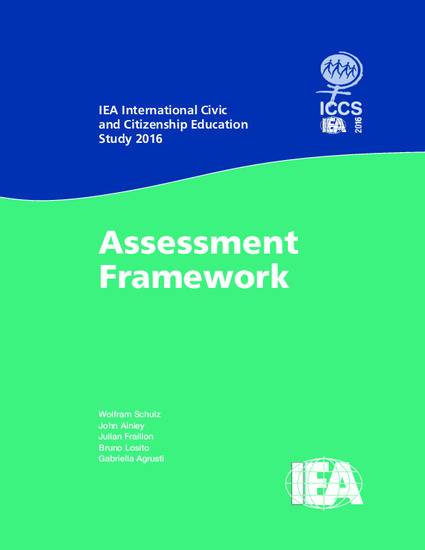
The purpose of the International Civic and Citizenship Education Study (ICCS) is to investigate the ways in which young people are prepared to undertake their roles as citizens in a range of countries in the second decade of the 21th century. ICCS 2016 is a continuation of this study, which was initiated in 2009. The development of a framework for ICCS 2016 needed to take account of recent developments and ongoing challenges. The international project team identified areas related to civics and citizenship education, which had either gained more attention in recent years or were regarded as relevant, but which were not addressed in great detail in the previous ICCS survey. The following three areas were identified for inclusion to broaden the scope of ICCS 2016: environmental sustainability in civic and citizenship education; social interaction in school; and the use of new social media for civic engagement. In addition, two further areas were identified that had been included in previous IEA surveys as deserving more explicit acknowledgement in the ICCS 2016 assessment framework: economic awareness as an aspect of citizenship; and the role of morality in civic and citizenship education. This report is divided into three major sections starting with background and an overview of the current study; followed by the civic and citizenship framework covering definitions and content domains; and finally the contextual framework which looks at the contexts for civic and citizenship education.
Copyright International Association for the Evaluation of Educational Achievement (IEA) 2016
Available at: http://works.bepress.com/julian_fraillon/56/
